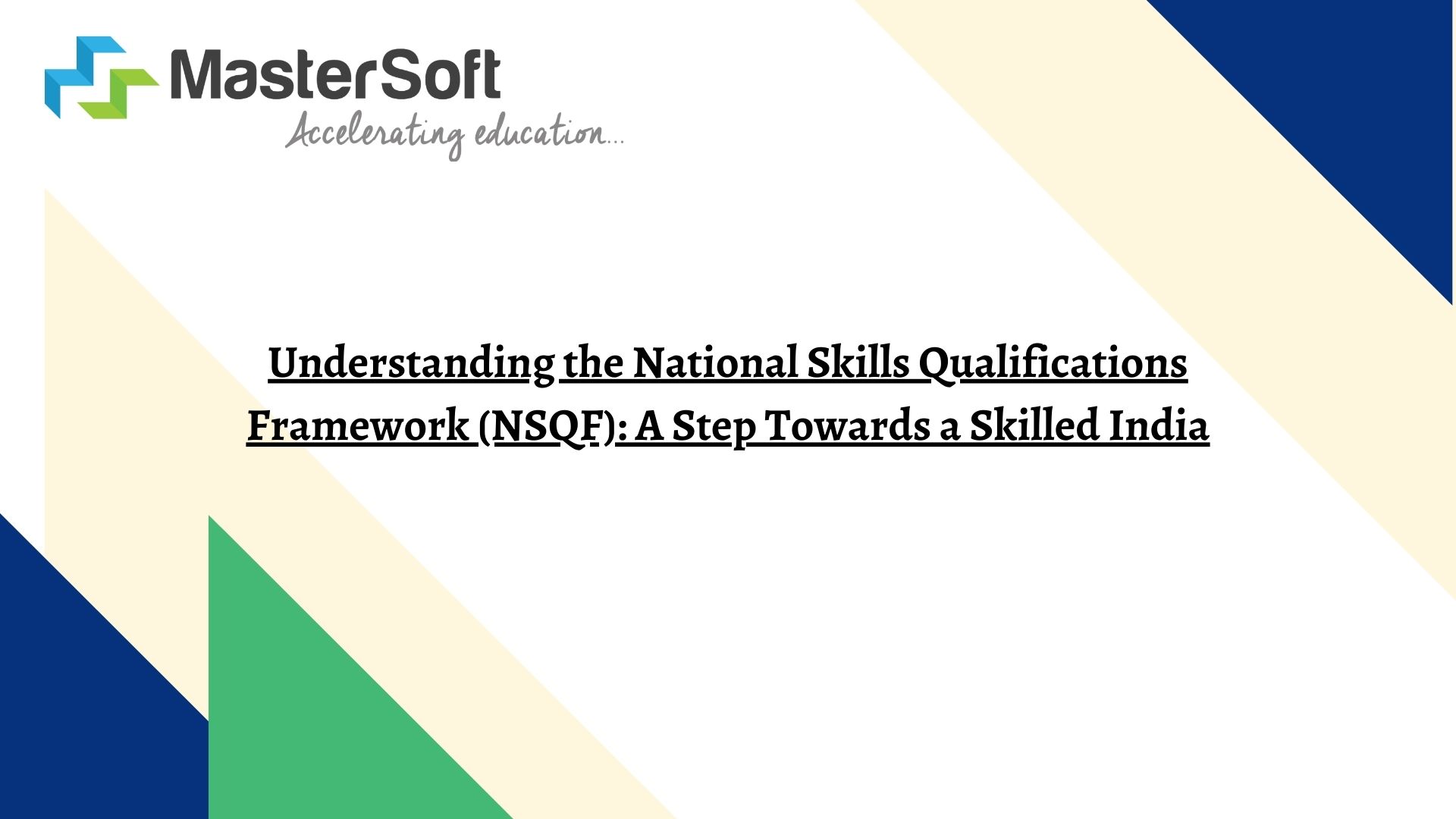In an ever-evolving economic landscape, the need for a skilled workforce has never been more critical. The National Skills Qualifications Framework (NSQF) is a pioneering initiative by the Indian government aimed at standardizing vocational education and training across the country. Launched by the Ministry of Skill Development and Entrepreneurship (MSDE) in 2013, NSQF plays a pivotal role in enhancing the employability of the Indian workforce. This blog explores the essence of NSQF, its objectives, structure, and impact on vocational education and training in India.
What is NSQF?
The National Skills Qualifications Framework NSQF is a competency-based framework that organizes all qualifications according to a series of levels of knowledge, skills, and aptitude. It provides a standardized approach to defining the skills required for various occupations, ensuring consistency and quality in vocational training programs.
Objectives of NSQF
1. Standardization of Skills
NSQF aims to standardize the skills required for various jobs, ensuring that vocational training across India adheres to a consistent and high-quality standard. This helps in maintaining uniformity in training programs and qualifications.
2. Enhanced Employability
By aligning educational qualifications with industry requirements, NSQF enhances the employability of individuals. Employers can trust that certified individuals possess the skills necessary for specific job roles, making the hiring process more efficient.
3. Lifelong Learning
NSQF promotes lifelong learning by providing clear pathways for skill development. Individuals can start with basic skills and progressively acquire advanced competencies, facilitating continuous professional growth.
4. Mobility and Recognition
The framework facilitates both vertical and horizontal mobility within the education and training system. This means that qualifications acquired at one level can be recognized and built upon at higher levels, encouraging further education and skill development.
5. International Compatibility
NSQF aligns with international qualification frameworks, enhancing the global mobility of Indian skilled workers. This is particularly important in today’s globalized job market, where workers need to adapt to diverse environments.
Structure of NSQF
NSQF is organized into ten levels, each representing a specific set of competencies and skill requirements. These levels range from basic skills (Level 1) to specialized expertise (Level 10). Each level is defined by the following criteria:
- Process Required: The degree of supervision, coordination, and responsibility involved in completing tasks.
- Professional Knowledge: The depth and breadth of knowledge required for the job.
- Professional Skill: The range of skills and their application in the workplace.
- Core Skill: Basic communication, numeracy, and IT skills required for the job.
- Responsibility: The level of responsibility and accountability in the job role.
Example of NSQF Levels:
- Level 1: Basic worker with limited skills, requiring close supervision.
- Level 5: Skilled worker with a broad range of skills, capable of independent work and decision-making.
- Level 10: Senior professional with specialized skills, responsible for strategic decision-making and innovation.
Implementation of NSQF
The successful implementation of NSQF involves several key stakeholders, including:
1. Government Bodies
The Ministry of Skill Development and Entrepreneurship (MSDE) and the National Skill Development Corporation (NSDC) play a central role in developing policies, guidelines, and standards for vocational training and education.
2. Training Providers
Vocational training institutes, both public and private, align their programs with NSQF standards. This ensures that their courses are recognized and meet industry requirements.
3. Industry Partners
Collaboration with industry partners is crucial for the success of NSQF. Employers provide input on skill requirements and help shape training programs to ensure they meet real-world demands.
4. Assessment and Certification Bodies
Independent bodies assess and certify individuals based on NSQF standards. This ensures that qualifications are credible and recognized across industries.
Impact of NSQF
1. Improved Quality of Training
NSQF has led to a significant improvement in the quality of vocational training programs. Standardized curricula, assessment criteria, and certification processes ensure that training is consistent and of high quality.
2. Increased Employability
By aligning training programs with industry needs, NSQF has increased the employability of individuals. Employers can trust that certified individuals possess the skills required for specific job roles.
3. Empowerment of the Workforce
NSQF empowers individuals by providing clear pathways for skill development and career progression. This is particularly beneficial for those from disadvantaged backgrounds who seek to improve their employability and livelihoods.
4. Enhanced Global Competitiveness
By aligning with international standards, NSQF enhances the global competitiveness of the Indian workforce. Skilled workers can find opportunities not only within India but also in the international job market.
5. Promotion of Lifelong Learning
NSQF encourages individuals to pursue continuous learning and skill development. This is essential in a rapidly changing job market where new skills are constantly in demand.
Challenges and Future Directions
1. Awareness and Adoption
One of the primary challenges is raising awareness about NSQF among training providers, employers, and individuals. Effective communication and outreach efforts are needed to promote the benefits of the framework.
2. Infrastructure and Resources
Ensuring that training institutes have the necessary infrastructure and resources to implement NSQF standards is crucial. This includes qualified trainers, updated curricula, and modern training facilities.
3. Industry Collaboration
Strengthening collaboration between training providers and industry partners is essential for the success of NSQF. Regular feedback from employers can help in updating training programs to meet evolving industry needs.
4. Monitoring and Evaluation
Continuous monitoring and evaluation of NSQF implementation are necessary to identify areas for improvement. This includes assessing the impact of the framework on employability and career progression.
Conclusion
The National Skills Qualifications Framework (NSQF) is a transformative initiative that aims to standardize vocational education and training in India. By aligning educational qualifications with industry requirements, NSQF enhances employability, promotes lifelong learning, and empowers individuals to build successful careers. While there are challenges to be addressed, the framework’s impact on India’s workforce development is undeniable. As awareness and adoption of NSQF continue to grow, it holds the potential to revolutionize the vocational education and training landscape, contributing to the country’s economic growth and development.
